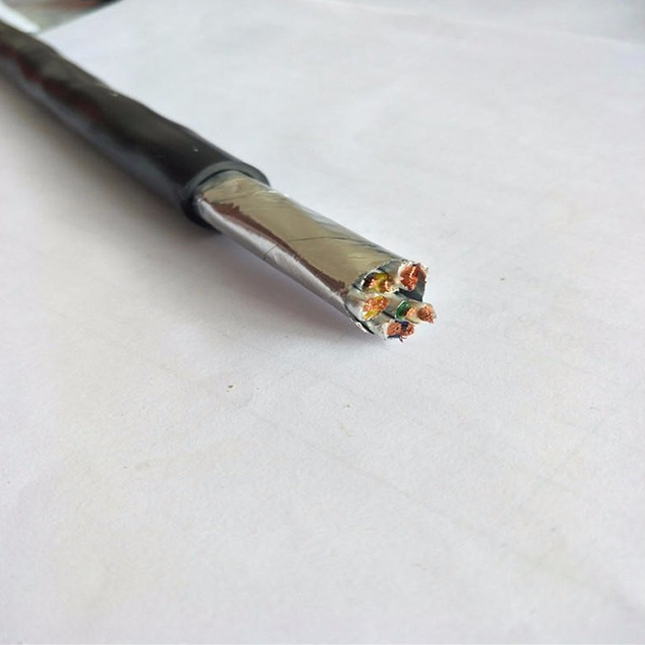
Understanding THHN Electrical Wire for Effective Service and Its Applications in Various Settings
Understanding THHN Electrical Wire A Crucial Component for Electrical Service
When it comes to electrical installations, the choice of wiring plays a pivotal role in ensuring safety, efficiency, and longevity. Among various types of electrical wires available in the market, THHN (Thermoplastic High Heat-resistant Nylon-coated) wire stands out as a popular choice, particularly for residential, commercial, and industrial applications. This article delves into the characteristics, benefits, and applications of THHN wire, highlighting why it is essential for reliable electrical service.
What is THHN Wire?
THHN wire is a type of building wire that is insulated with a thermoplastic material and coated with nylon. This combination allows it to withstand high temperatures—up to 90°C (194°F) in dry conditions—and makes it resistant to moisture and chemicals. The wire is typically stranded and available in various gauges, making it suitable for a wide range of electrical applications, from wiring buildings to feeding motors.
Key Characteristics of THHN Wire
1. Heat Resistance As its name suggests, THHN wire can endure high temperatures, making it ideal for environments where heat build-up might be a concern.
2. Moisture and Chemical Resistance The nylon coating provides an additional layer of protection against moisture and various chemicals, which is especially important in industrial settings where exposure to corrosive substances is common.
3. Durability THHN wire is built to last. Its robust construction and materials allow it to resist abrasion and cut-through, making it a reliable choice for high-demand applications.
4. Versatility Available in a wide range of sizes and colors, THHN wire can be used for various applications, including residential wiring, commercial electrical systems, and industrial machinery.
Advantages of Using THHN Wire
- Efficiency The high heat resistance of THHN wire translates to less energy loss, ensuring more efficient electrical conduction. This efficiency can lead to long-term savings on energy costs.
electrical wire thhn service

- Installation THHN wire is relatively easy to handle and install, thanks in part to its flexibility. This can lead to quicker installations, reducing labor costs and project timelines.
- Compliance THHN wire meets the standards set by the National Electrical Code (NEC), ensuring that installations are safe and compliant with regulations. This is particularly important for professionals in the electrical industry.
- Safety The insulation of THHN wire provides excellent protection against electrical shocks and short circuits, contributing to a safer environment in homes and workplaces.
Applications of THHN Wire
THHN wire is widely used in various electrical projects, making it an essential material for electricians and contractors. Common applications include
- Building Wiring THHN is often used for branch circuits in residential and commercial buildings. Its versatility allows it to connect different electrical devices and systems efficiently.
- Conduit Wiring It is commonly used inside conduit due to its robustness and resistance to moisture and chemicals.
- Service Entrance Wiring THHN wire is frequently chosen for service entrance feedings due to its high current-carrying capacity and ability to handle external environmental factors.
- Industrial Machinery In industrial settings, THHN wire is used to connect electrical equipment and motors, ensuring safe and efficient operation.
Conclusion
THHN electrical wire is an invaluable choice for a wide range of electrical applications. Its heat resistance, durability, versatility, and safety features make it ideal for everything from residential wiring to industrial use. Understanding the properties and advantages of THHN wire is crucial for anyone involved in electrical installations, ensuring that the systems established are safe, efficient, and long-lasting. As you plan your next electrical project, consider the vital role that THHN wire can play in achieving reliable and effective service.
-
Reliable LIYCY Cable Solutions for Low and Medium Voltage ApplicationsNewsJul.14,2025
-
Premium Overhead Electrical Wire Solutions for Low and Medium Voltage ApplicationsNewsJul.14,2025
-
Innovative XLPE Electrical Cable Solutions for Modern Low and Medium Voltage NetworksNewsJul.14,2025
-
High-Quality Ethylene Propylene Rubber Cable – Durable EPDM Cable & 1.5 mm 3 Core OptionsNewsJul.14,2025
-
Exploring the Versatility of H1Z2Z2-K 1X4mm2 Cables in Modern ApplicationsNewsJul.14,2025
-
Uses of Construction WiresNewsJul.14,2025
-
Types of Neoprene CableNewsJul.14,2025














